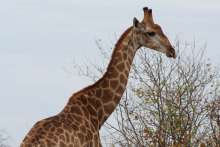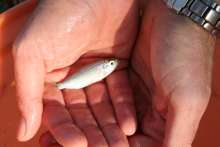Climate effects on herbivores in the Kruger National Park
|
Armin Seydack of SANParks Scientific Services studies the trends in populations of large herbivores in the Kruger National Park.
He presented data on the trends in populations of antelope species that are selective feeders, compared to bulk feeders such as wildebeest, zebra and buffalo. Their research investigates the impact of factors such as altitude, temperature and rainfall on the quantity and quality of the food base, and consequent impact on herbivore populations.
This knowledge may become useful for predicting how future climate change may impact different species. Current results suggest that rare antelope species (selective feeders) may already be adversely affected by climate change.
Measuring how climate change may affect aquatic biodiversity
Sean Buchanan of the University of the Witwatersrand presented a paper on research efforts to measure changes in biodiversity in the Sabie River as a result of climate change.
This project focused on how fish biodiversity is affected by water temperature along various sites along the river. Water temperature is an important driver in an aquatic system: Some species thrive in warmer waters, while others are adapted to colder conditions. The natural temperature gradient along this river helps to show how species may respond as a result of climate change. An overall rise in temperature, predicted by climate change models, will restrict the range of species adapted to colder water.
The research team identified two indicator fish species that can be used to monitor how biodiversity is changing in the Sabie River.
The outcomes of the meeting were summarised by science communicator Marina Joubert of Southern Science.












